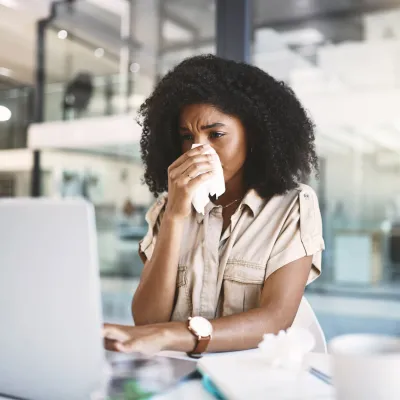- AdventHealth

We share your concerns about staying healthy right now, and that includes staying up to date with your routine cancer screenings. If you’ve been reluctant to schedule a visit for cancer screening, rest assured: we’re making it safe to get back to taking care of your whole health.
Learn more about cancer screenings for every stage of your life, and how early detection can save lives.
Early Diagnosis and Treatment Can Save Your Life
Don’t be afraid to talk to your doctor about your cancer risk and the screening tests you need. While there’s no guaranteed way to prevent cancer, regular cancer screenings are important because early diagnosis offers a better chance for a cure in many cases.
Find the Cancer Screening Schedule That’s Right for You
There’s no universal cancer screening regimen. Instead, your doctor will determine how often to screen for cancer based on your:
-
Age
-
Family Health History
-
Gender
-
Genetic Risks for Cancer
-
Personal Health History
Be sure to talk with your doctor about all the risks involved with cancer screening and any concerns you may have about cancer screening and your safety.
For Adolescents and Teens
Because childhood cancers are rare, doctors don’t typically recommend cancer screenings for children and teens. However, if a child has an inherited risk of developing cancer, doctors may recommend regular checkups and tests to look for signs of cancer.
For Adults Age 21 to 49
There aren’t any standard screening rules for young men. But for young women, screenings for both cervical and breast cancer are recommended.
Starting at age 21, the National Cancer Institute recommends women get regular pelvic exams and Pap tests to check for early signs of cervical cancer every three years. These tests can also find early signs of other cancers of the female reproductive system (gynecologic cancer).
Some women may need to start screening earlier or have more regular screenings if they have a higher cancer risk.
Breast cancer screening involves a mammogram, which is an X-ray of the breast tissue. There are many differing opinions on when to start breast cancer screening, and screening guidelines vary from organization to organization. However, the general recommendation is that women begin annual mammograms at age 40.
It’s important to have a conversation with your doctor about the pros and cons of mammogram screening and the risks involved with these tests.
For Adults Over 50
When you reach age 50, many screenings are recommended for your protection, from screenings for reproductive to lung cancer.
Breast cancer screening: The U.S. Preventive Services task force recommends women age 50–74 receive a mammogram every other year to screen for breast cancer. However, you may need more regular screening if you’re at a higher risk.
Colon cancer screening: Colonoscopies can find early signs of colorectal cancer and help stop the disease from developing altogether. That’s why the National Cancer Institute recommends regular colonoscopies for men and women age 50 to 75. How often you undergo screenings will depend on your personal and family health history.
Prostate cancer screening: While there’s no standard screening guideline for prostate cancer, men age 50 and older should talk with their doctor about the risks and benefits of screening and whether they should be tested for signs of prostate cancer.
Lung cancer screening: Although it’s a relatively recent practice, lung cancer screening has been shown to decrease the risk of dying from lung cancer in heavy smokers age 55 to 74. Talk to your doctor about screening if you are, or have ever been, a smoker.
Schedule Your Cancer Screenings Today
Don’t hesitate to speak with your doctor about your concerns and questions about cancer screening and prevention. Together, you can find the right screening schedule for you, so you can maintain your health.
If you have concerns about getting your screenings or other medical services right now, we want to assure you we’re doing everything possible to protect you, your loved ones and our staff and medical providers.
Some of our safety measures include:
-
Patient grouping to ensure patients with COVID-19 are separate from patients and visitors
-
Required use of face masks for every person in our facilities
-
Social distancing to keep everyone 6 feet apart
-
Strict visitor restrictions
-
Temperature screening for all visitors at all entrances
Although cancer screening requires a physical exam such as an X-ray, mammogram or biopsy, we’re offering expanded telehealth video visits to get your screening results from the comfort and safety of your home. Learn more about our comprehensive and safe Cancer Care.



